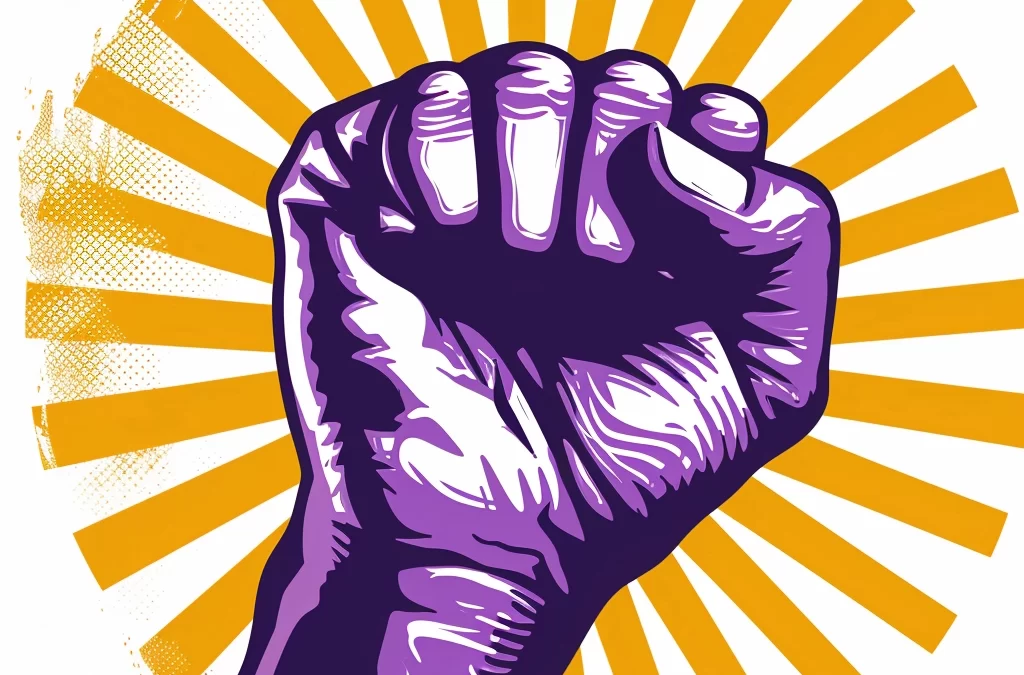Bargaining can be a long and technical process, so it’s vital that everyone can get involved, get informed, and fight for a strong contract in their workplace. SEIU Local 1000’s Strike School program provides critical information for members to get a sense of their rights to collective action in the workplace, as well as develop our understanding and respect for the power of a strike.
In the class, we cover concepts like what ‘good faith bargaining’ is, what an ‘impasse’ in contract negotiations means, and how we handle unfair labor practices during and after negotiations.
Bargaining can be a long and technical process, so it’s vital that everyone can get involved, get informed, and fight for a strong contract in their workplace. SEIU Local 1000’s Strike School program provides critical information for members to get a sense of their rights to collective action in the workplace, as well as develop our understanding and respect for the power of a strike.
In the class, we cover concepts like what ‘good faith bargaining’ is, what an ‘impasse’ in contract negotiations means, and how we handle unfair labor practices during and after negotiations.
Bargaining with public employers poses unique challenges and opportunities. That’s why we’re inviting leaders from Local 1021 like David Canem, who has worked to organize over 30 strikes in the last decade. Local 1021 represents our union siblings working in county and city governments in Northern California, as well as employees of the local school district.
“The Strike School is a training designed to ensure that members know their collective rights to take action in their workplace,” says Hannah Nguyen, an SEIU International advisor. “We’re teaching about all the elements of protected rights we share in our workplaces and hearing from other public sector unions that have had lots of success after striking.”
Members leave feeling more prepared and excited to exercise their rights in the workplace. Collective actions are a unifying feature of working in a union workplace and act as a catalyst for change.
“There’s a lot of misinformation about our strike clause. People think that because we have a strike clause, which is almost universal in union contracts, that we cannot strike,” Hannah continues. “We can strike due to a Unfair Labor Practice (ULP), which is a direct response to a serious and unfair practice by the State, at any time, or open-ended strikes that come after an impasse in bargaining.”
Going on strike is a powerful tool, but it requires a short-term sacrifice that should not be underestimated. Our members take this power seriously, and with the Strike School, we can all understand the gravity of a strike, and know our rights and responsibilities.
“We aren’t hiding this from the State,” says Hannah. “We want them to know that we are prepared to take any steps necessary and make our commitment to getting the best contract as visible as possible. “
